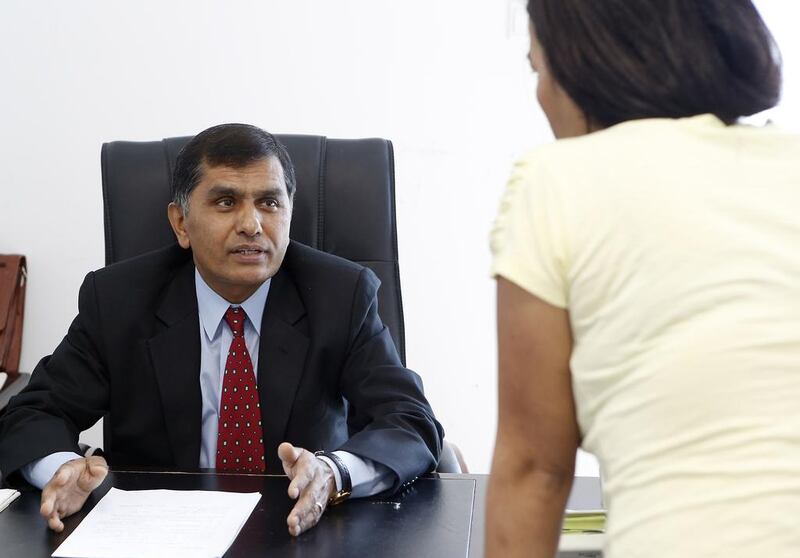ABU DHABI // Nepalese housemaids will have to apply for new visas after their government introduced tougher rules on hiring designed to protect them from exploitation.
More than 10,000 housemaids working legally in the UAE will be affected, and a Nepalese diplomat warned that women would be denied the right to work overseas if they failed to follow the new rules.
“The Nepalese government has enacted new housemaids recruitment rules from August 23,” said Netra Tandan, charge d’affaires at the Nepalese embassy in Abu Dhabi. “Now all domestic workers are required to process through registered agencies in the UAE and Nepal.
“If they fail to do this, the UAE sponsor will lose money and the services of the housemaid when she travels home on holidays. They need to reapply under the new rules.
“It will cost a little bit more to the sponsor but they will have a legally hired maid.”
Many women come here on a tourist or cleaner’s visa and then get a job as a housemaid. “That’s where exploitation begins,” Mr Tandan said.
“If we don’t take these measures, illegal hiring will continue.”
Ten recruitment agencies in the UAE have been authorised – two in Ajman, one in Al Ain and seven in Abu Dhabi.
The agencies were required to offer a security deposit of US$10,000 (about Dh36,700) at the embassy.
There are 25 agencies registered in Nepal.
Each housemaid that comes to the Gulf will also have to undergo one month’s training, including Arabic lessons if they are going to an Arabic-speaking household.
The Nepalese government has also reduced the age limit for housemaids to 24 from 30, and fixed the minimum monthly wage at Dh1,100.
Twenty-five maids’ documents have been approved since the rules came into force.
Mr Tandan said the embassy had been spreading news of the rules online and within the Nepalese community, although many people and recruitment agencies were still unaware.
“We know this will affect many housemaids and sponsors who already have maids working but the rule has been made to stop their exploitation,” he said.
“Those women who exit the country without the Nepal government’s permission to work as housemaid will be considered a victim of human trafficking.”
anwar@thenational.ae






